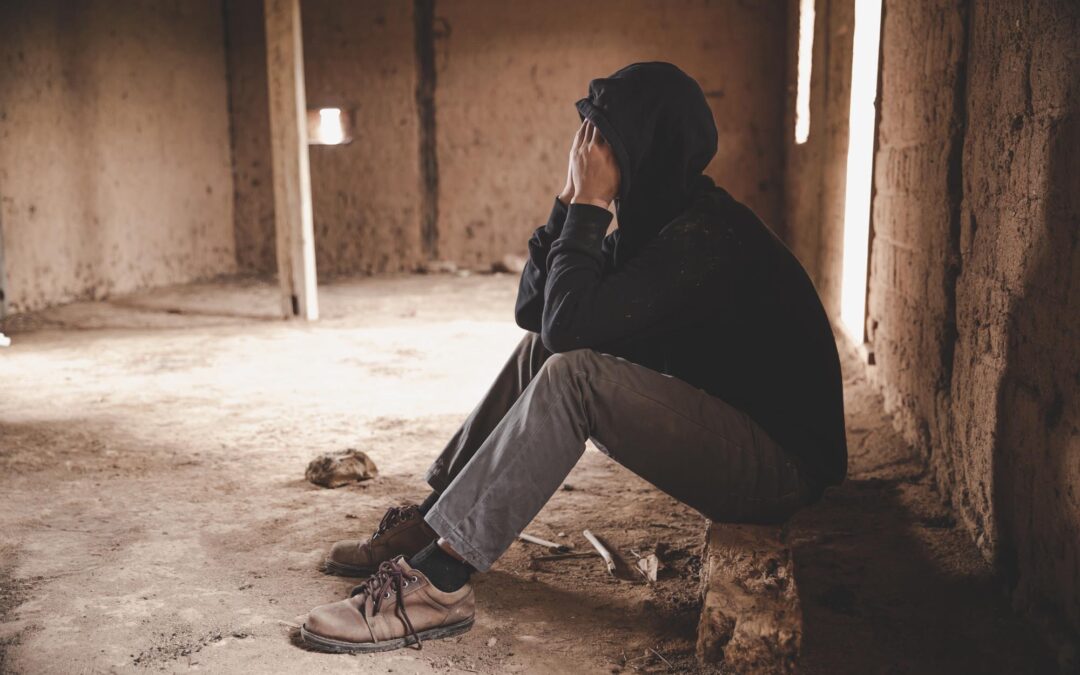A Guide to Finding a Rehab for Co-Occurring Disorders
Understanding Dual Diagnosis
When someone struggles with both a substance use disorder (SUD) and a mental health disorder at the same time, this is known as dual diagnosis or co-occurring conditions. You’re not alone if this describes your situation—dual diagnosis is more common than many people realize.
The connection between substance use and mental health runs deep. Approximately 9.2 million adults in the United States experience co-occurring disorders, yet only a small fraction receive treatment for both conditions. Understanding what dual diagnosis means is the first step in knowing how to find a rehab that treats dual diagnosis effectively.
Dual diagnosis encompasses the simultaneous presence of:
- A substance use disorder (alcohol, prescription medications, or illicit drugs)
- One or more mental health conditions
The most common mental health disorders that appear alongside SUD include:
- Depression – persistent sadness, loss of interest, and feelings of hopelessness
- Anxiety disorders – excessive worry, panic attacks, and social anxiety
- Bipolar disorder – extreme mood swings between manic and depressive episodes
- Post-traumatic stress disorder (PTSD) – trauma-related flashbacks and emotional distress
- Schizophrenia – disruptions in thought patterns and perception
These conditions often fuel each other in a challenging cycle. Someone might use substances to cope with mental health symptoms, while the substance use can worsen those same symptoms. Breaking this cycle requires specialized care that addresses both issues together, such as dual diagnosis treatment programs available in various rehab centers.
Recognizing Signs and Symptoms of Dual Diagnosis
Identifying the signs of dual diagnosis can be challenging because the symptoms of mental illness and symptoms of SUD often overlap and mask each other. Understanding what to look for helps you or your loved one seek appropriate care sooner.
Behavioral and Emotional Indicators
Behavioral and emotional indicators that may point to underlying mental health conditions include:
- Dramatic mood swings that seem disconnected from circumstances
- Experiencing hallucinations or delusions
- Persistent feelings of hopelessness or worthlessness
- Thoughts of self-harm or suicide
- Extreme anxiety or panic attacks
- Difficulty concentrating or making decisions
- Social withdrawal and isolation from friends and family
Distinct Patterns of Substance Use Disorder
Substance use disorder manifests through distinct patterns that signal a growing problem:
- Developing increased tolerance, needing more of the substance to achieve the same effect
- Experiencing withdrawal symptoms when not using
- Engaging in risky behaviors while under the influence
- Neglecting responsibilities at work, school, or home
- Continuing substance use despite negative consequences
- Failed attempts to cut back or quit
Catching these warning signs early dramatically improves treatment outcomes. When both conditions receive attention from the start, individuals have a better chance at building sustainable recovery. Many people struggle silently for years before recognizing that their substance use and mental health challenges are interconnected, which is why awareness of these symptoms matters so much for getting help at the right time.
For those grappling with such challenges, understanding the nature of addiction through resources like those provided by McLean Hospital can be incredibly beneficial.
The Need for Integrated Treatment in Dual Diagnosis Cases
When someone has both a substance use disorder and a mental health condition, treating them separately can lead to gaps in care. Traditional methods that keep addiction treatment and mental health services apart often result in one condition being ignored. This creates a cycle where symptoms from the untreated disorder cause relapse in the other.
Integrated treatment changes this dynamic by addressing both conditions simultaneously within a unified care plan. This approach recognizes that substance use and mental health disorders influence each other in complex ways. Depression might drive someone to self-medicate with alcohol, while continued alcohol use deepens depressive symptoms. Breaking this cycle requires comprehensive care that tackles both issues at once.
Research consistently shows that simultaneous treatment produces better outcomes than sequential or parallel approaches. Clients receiving integrated care experience:
- Lower relapse rates across both conditions
- Improved medication adherence
- Better engagement in therapy
- Enhanced quality of life and daily functioning
- Reduced hospitalizations and crisis interventions
Evidence-based therapeutic methods form the foundation of effective integrated care. Cognitive Behavioral Therapy (CBT) helps clients identify and change thought patterns that contribute to both substance use and mental health symptoms. Dialectical Behavior Therapy (DBT) teaches emotional regulation skills particularly valuable for those struggling with intense feelings that fuel addictive behaviors. These relapse prevention strategies work synergistically, addressing the interconnected nature of co-occurring disorders while building sustainable coping mechanisms for long-term recovery.
Key Features to Seek in a Dual Diagnosis Rehab Center
Finding a rehab that treats dual diagnosis requires looking beyond basic addiction services. The right facility should offer specialized dual diagnosis rehab features designed to address both conditions simultaneously and with equal attention.
1. Comprehensive Assessment Process
A quality dual diagnosis program begins with a thorough psychiatric evaluation conducted by licensed mental health professionals. This assessment goes deeper than standard intake procedures, examining your mental health history, current symptoms, and how they interact with substance use patterns. The addiction evaluation should run parallel to this psychiatric assessment, creating a complete picture of your unique situation.
2. Integrated Care Under One Roof
The most effective dual diagnosis rehab centers provide both medical and behavioral therapies within the same facility. This means you won’t need to travel between different providers for mental health treatment and addiction care. Your treatment team should include psychiatrists, addiction specialists, therapists, and medical staff who communicate regularly about your progress.
3. Personalized Treatment Planning
Individualized care plans form the foundation of successful dual diagnosis treatment. Your plan should reflect your specific mental health diagnosis, substance use patterns, personal goals, and any co-occurring medical conditions. This customization ensures that every aspect of your treatment addresses your needs rather than following a one-size-fits-all approach.
4. Medication Management Services
When appropriate, medication can play a vital role in stabilizing mental health symptoms while you work through addiction recovery. Look for programs offering medication management options with regular monitoring and adjustments as needed.
In cases where marijuana is part of the substance use patterns, it’s essential that the rehab center provides specialized marijuana addiction treatment programs. Such programs help individuals learn coping techniques to overcome addiction effectively while also addressing their mental health needs.
5. Evidence-Based Treatment Approaches
Ensure that the rehab center employs evidence-based treatment approaches for both mental health and substance use disorders. These methods have been scientifically validated to produce positive outcomes and are crucial for effective dual diagnosis treatment.
Exploring Treatment Program Options for Dual Diagnosis Patients
Finding the right level of care makes all the difference when addressing both addiction and mental health challenges simultaneously. Outpatient programs offer a practical solution for individuals who need comprehensive treatment while maintaining their daily responsibilities. These programs provide the flexibility to attend therapy sessions and receive professional support without requiring residential placement.
What Does Outpatient Treatment Include?
Outpatient treatment typically includes:
- Individual therapy sessions tailored to your specific mental health and substance use concerns
- Group therapy that builds community and shared understanding among peers facing similar challenges
- Psychiatric consultations to monitor both conditions and adjust treatment as needed
- Flexible scheduling options that accommodate work, school, or family obligations
The Benefits of Intensive Outpatient Programs (IOP) for Dual Diagnosis Patients
For those requiring more structured support, an intensive outpatient program (IOP) for dual diagnosis patients delivers a higher level of care while still allowing you to return home each day. IOP programs meet multiple times per week for several hours per session, creating a robust framework for recovery.
The structured nature of IOP emphasizes:
- Evidence-based coping skills development to manage both mental health symptoms and substance cravings
- Comprehensive relapse prevention education that addresses triggers related to both conditions
- Regular therapeutic contact that provides accountability and consistent support
- Psychoeducation about the relationship between your mental health disorder and substance use patterns
Both treatment modalities recognize that recovery happens in the context of real life, equipping you with practical tools you can apply immediately.
Insurance Coverage, Cost Considerations, and Finding the Right Rehab Facility for Co-Occurring Disorders
Navigating the financial aspects of dual diagnosis treatment can feel overwhelming, but understanding your options makes the process more manageable. The Affordable Care Act addiction treatment coverage has significantly expanded access to mental health and substance use services, requiring most private insurance plans to cover these treatments as essential health benefits. Many plans now provide insurance coverage dual diagnosis rehab services, including psychiatric evaluations, therapy sessions, and medication management.
When researching coverage, contact your insurance provider directly to ask specific questions about:
- Mental health and substance use disorder benefits
- In-network providers specializing in dual diagnosis
- Copayments, deductibles, and out-of-pocket maximums
- Pre-authorization requirements for treatment programs
Finding dual diagnosis rehab center options that match your needs and budget becomes easier with the right tools. SAMHSA’s Behavioral Health Treatment Services Locator (findtreatment.gov) offers a comprehensive database of facilities nationwide, allowing you to filter by location, payment options, and specialized services like co-occurring disorder treatment.
Advanced Addiction Center in Medford, Massachusetts, accepts various insurance plans and provides transparent information about costs during the initial consultation. The team can verify your benefits and explain what your plan covers, helping you make informed decisions about personalized addiction care without financial surprises. Many facilities also offer payment plans or sliding scale fees for those without insurance or with limited coverage.
The Role of Aftercare in Sustaining Recovery from Dual Diagnosis
Recovery doesn’t end when formal treatment concludes. Aftercare planning for dual diagnosis serves as the bridge between structured treatment and independent living, helping individuals maintain the progress they’ve worked so hard to achieve. Without ongoing support, the risk of relapse increases significantly, particularly when managing both substance use and mental health challenges simultaneously.
Importance of Long-Term Follow-Up Care
Long-term follow-up care creates accountability and provides continued access to professional guidance during vulnerable moments. Regular check-ins with therapists or counselors allow for adjustments to treatment plans as life circumstances change. These touchpoints become especially valuable when stress levels rise or triggers emerge unexpectedly.
Community Connection for Relapse Prevention
Relapse prevention strategies gain strength through community connection. Support groups specifically designed for dual diagnosis offer safe spaces where individuals can share experiences with others who understand the unique challenges of managing co-occurring disorders. Whether through 12-step programs adapted for dual diagnosis or peer-led recovery groups, these connections reduce isolation and reinforce healthy coping mechanisms.
Continued Therapy Sessions for Skill Reinforcement
Continued therapy sessions—whether weekly, biweekly, or monthly—help individuals process new challenges while reinforcing skills learned during treatment. Many people benefit from a combination of individual therapy for personalized support and group sessions for community connection.
The Role of Employment Opportunities in Aftercare
Moreover, aftercare can also include employment opportunities for individuals in addiction recovery, which play a crucial role in rebuilding self-esteem and fostering a sense of purpose. When searching for how to find a rehab that treats dual diagnosis, asking about their aftercare offerings reveals their commitment to long-term recovery success rather than just short-term stabilization.

Start Your Healing Journey with Advanced Addiction Center’s Dual Diagnosis Program
Finding a rehab that treats both addiction and mental health issues can be challenging. However, it doesn’t have to be. The Advanced Addiction Center dual diagnosis program in Medford, Massachusetts offers personalized treatment options designed around your unique circumstances. Our compassionate team understands the complexities of managing both substance use and mental health challenges simultaneously.
Whether you’re exploring outpatient flexibility or need the structure of intensive programming, we’re here to help you navigate your options. Our dual diagnosis recovery support continues long after your initial treatment, ensuring you have the tools and connections needed for lasting wellness.
Effective Treatment for Depression and Substance Abuse
If you’re struggling with depression and substance abuse, our program is designed to address these issues concurrently for more effective treatment. We offer a range of therapies including individual therapy which helps clients learn healthy coping mechanisms to overcome addiction with the guidance of a licensed therapist.
Get Started Today
Ready to begin your healing journey? Call our admissions team at (781) 560-6067 or contact us online to discuss how we can assist you in starting your recovery today. If you’re located near Chicopee, we also provide personalized addiction treatment with individual care plans focused on your long-term success.








